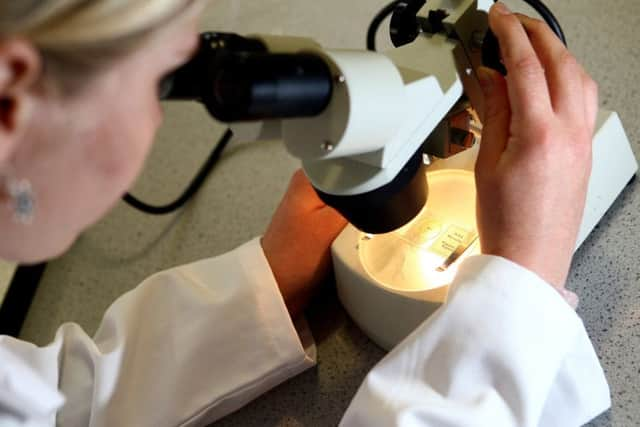12 signs someone could have cancer according to the NHS - how many do you recognise?
Huge numbers of people cannot recognise the signs of cancer
Charity Cancer Research UK conducted research into peoples' ability to spot the signs of cancer.
Overall, of the nearly 4,000 people questioned, 19% of men and 10% of women could not name a single symptom that might be a sign of cancer.


Specific findings included:
Advertisement
Hide AdAdvertisement
Hide Ad54% of respondents volunteered a ‘lump’ as being a sign of cancer
25% said skin problems
16% said moles
19% mentioned bowel, urinary or toilet problems
16% of males reported weight loss
22% of females reported weight loss
13% of white respondents could not name a sign or symptom of cancer
28% of ethnic minority respondents could not name a sign or symptom of cancer
What are the common signs and symptoms of cancer? According to NHS choices and Cancer Research UK:
Advertisement
Hide AdAdvertisement
Hide AdDeveloping any of these symptoms does not definitely mean that a person has cancer, but it is important to speak to a doctor if they appear. These potential warning signs include:
unexplained weight loss
unusual swellings or lumps anywhere on the body
changes in the size, shape or colour of a mole
ulcers or sores that won’t heal
blood in urine or faeces,
changes in bowel habits that last longer than six weeks,
problems passing urine
a cough or hoarse voice persisting for longer than three weeks,
difficulties swallowing
heavy night sweats
unexplained persistent pain lasting longer than four weeks, and
for women, unusual change to the breast, or vaginal bleeding after menopause or between periods.
What are the benefits knowing the signs of cancer?
Advertisement
Hide AdAdvertisement
Hide AdIt is important to be aware of the signs and symptoms of cancer because early diagnosis of the disease greatly improves the chances of treating it successfully. When cancer is left untreated it is more likely to spread to other organs or sites of the body, making it more difficult to treat successfully. The survival of people with most cancers is much better in cases where the cancer is identified before it has spread.
Cancer Research UK give several examples of just how important an early diagnosis can be:
The survival rate for lung cancer is generally quite poor because the disease is usually diagnosed when it is at an advanced stage.
Only 7% of people will be alive five years after their diagnosis. However, if lung cancer is diagnosed at its earliest stage, as many as 80% of people affected will be alive five years after their diagnosis.
Advertisement
Hide AdAdvertisement
Hide AdMalignant melanoma, the most serious skin cancer, provides another example. Only 47% of men and 55% of women will be alive after five years if the melanoma is more than 3.5mm thick when it is diagnosed. However, if the melanoma is diagnosed when it is less than 1.5mm thick, 93% of men and 97% of women will be alive five years after they are diagnosed.
Treatment options for cancer are improving all the time, and the number of people who die from their disease is falling overall. Improved treatments for testicular cancer, for example, mean that if diagnosed early, more than 90% of men are cured.
Sara Hiom, the director of health information at Cancer Research UK, estimates that “as many as 5,000 deaths could be avoided each year in the UK if cancers were diagnosed early”.